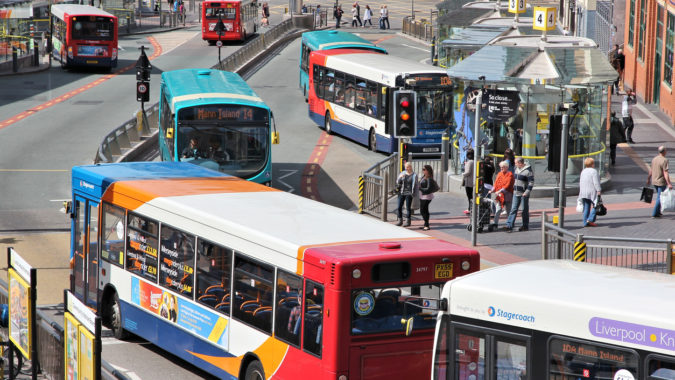Sir John Armitt writes on the benefits of HS2, the need for Northern Powerhouse Rail and Crossrail 2, and how following recommendations in the National Infrastructure Assessment would mean providing £43billion funding between now and 2040 and extra powers to mayors and city leaders across the country – including those on the HS2 route – to improve inner-city transport connections
Stretching from London to Birmingham and up to Manchester and Leeds, HS2 is a project whose time has come, increasing journey speeds and capacity across the country. Its benefits will be felt for decades to come. But we need to make the most of this opportunity, think beyond the rail line, and ensure that passengers can travel easily and quickly once they get off the train and into the cities themselves.
In many ways, HS2 should be treated like any other project. There needs to be maximum possible collaboration between all parties involved so everyone is clear what the outcomes should be, the scope of the works and the design, and the time that construction will take. Recent reports suggest HS2 Ltd may have spent £4.1billion before construction and since 2009, with £1.6billion of this said to be for requisitioning land and property. This seems a lot – but a failing of many projects is that they don’t spend enough on scoping and innovations that could help reduce final costs, so this investment could and should be beneficial to taxpayers in the longer term. Further, a 21st century rail service shouldn’t rely on patching up Victorian-era infrastructure – after all, the HS1 line between London and Kent is the most reliable in the country and HS2 should be even better.
However, in other respects HS2 is not a project like any other. It is the most significant investment in the capacity and connectivity of our transport networks for a generation or more, and its lifespan will be greater than for most other infrastructure. The potential impact could extend 100 years or more, and its upfront costs should be considered in that context. But this also means we cannot simply construct a new high speed rail line and leave it at that: to get the biggest bang for our buck we need to think about the whole journey that passengers will take.
In July we published the UK’s first-ever National Infrastructure Assessment, examining how to best meet the country’s infrastructure needs up to 2050 and across a range of sectors including transport, energy, digital technology, flood risk management, waste and water supplies. It includes support for Crossrail 2 to increase capacity across London and relieve the capital’s busiest terminal stations, and for Northern Powerhouse Rail, which will improve links between cities including Sheffield, Hull, Liverpool and Newcastle.
But once people reach the end of their HS2 journey and travel into the city they are visiting, on current form they would in many cases face inadequate public transport links and congestion on the roads as they try to get from A to B. Alongside investment in rail links across the country, we need to better fund improvements to transport within our cities.
We’ve recommended that metro mayors and city leaders have the powers and funding to develop and implement long-term strategies for better local transport, considering how best to tackle congestion when there is simply not enough space in city centres for everyone to travel by car. These should be integrated with plans for improving employment opportunities and delivering much-needed new homes – all to ensure the cities reach their full economic potential.
To support this, Ministers should provide increased funding for cities through devolved infrastructure budgets, building on the current model in London, with regular and direct funding allocations guaranteed by new legislation. There should also be additional powers for metro mayors, particularly to make decisions on major housing development sites.
And Ministers should agree significant new funding for major infrastructure programmes in the fastest growing and most congested cities, such as new trams and rapid bus networks, selecting the first for investment as early as 2019 and committing funding by 2020.
All this would mean the UK’s cities outside London receiving a £43 billion boost in funding up to 2040, on top of current spending levels, and in addition to investment in Northern Powerhouse Rail and Crossrail 2.
This is not an unaffordable pipe dream – in developing the National Infrastructure Assessment we ensured all our proposals, including those for our cities, are deliverable within the government’s remit for 1.2 per cent of GDP being invested in infrastructure. That’s meant tough decisions and trade-offs – but we believe this is the best way to help tackle the long-standing issue of congestion in our cities. And it’s the best way to make the most of all that HS2 will have to offer.
This article first appeared in the Sunday Telegraph



